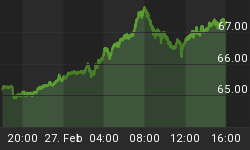As we head into the black Friday holiday shopping season, cash is king.
Cash will be the most popular payment method for shoppers buying holiday gifts, with 39% of Americans saying they plan to use it for most of their holiday purchases, in a recent survey of 1,000 shoppers personal finance website Bankrate conducted with Princeton Survey Research Associates International. This number was about the same as in 2014, when 38% of holiday shoppers said they planned to use cash.
Behind cash, the most popular choices for payment were debit cards, with 31% saying they would pay this way, followed by credit cards (22%) and checks (3%).
Younger shoppers were especially unlikely to use credit cards; 48% of millennials said they would do most of their holiday shopping with debit cards, and 36% said they preferred cash. Mobile payments are still unpopular; only 14% of U.S. adults with smartphones or similar devices plan to make even one mobile payment during the holiday season, according to Bankrate.
Millennials in general tend to avoid credit cards more than previous generations have done; 63% of millennials don't own a single credit card, according to a separate Bankrate survey in 2014. "They grew up in the Great Recession and saw what happened with their parents," Cetera said. "They don't ever want to be in a situation where they're in debt. They're shying away from high-interest loans, essentially."
Millennial Attitudes
That stat on credit card usage by millennials is precisely in tune with a statements I made in 2008 if not before.
- Kids will be competing with their parents and grandparents for jobs that do not pay a living wage.
- Children whose parents are being destroyed by debt now, will keep those memories for a long time.
Deflationary Trends
- Millennial attitudes
- Technology
- Demographics of aging boomers
- Student debt
- Millennials overpay for healthcare
- Low family formation rates
The Fed, the ECB, Bank of Japan, Bank of China, etc., are fighting major deflationary forces.
Attitudes are the key force actually. It took two generations for memories of the great depression to go away.
And it will take at least a generation for millennials who saw their parents lose their homes or get into huge fights over money for those memories to vanish.
To top it off, the Fed (central banks in general) has spawned another enormous asset bubble that will hugely add to deflationary woes when it pops.















